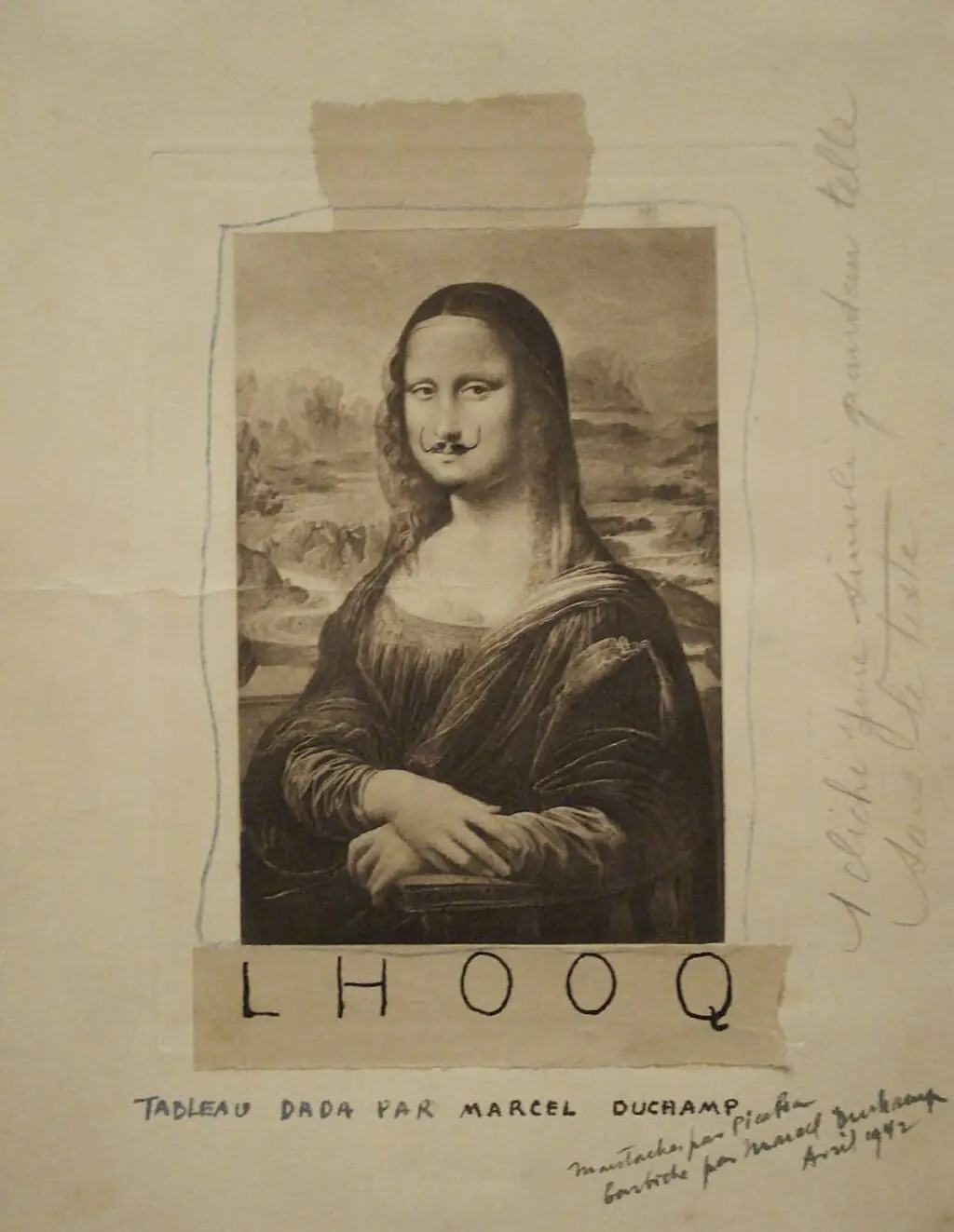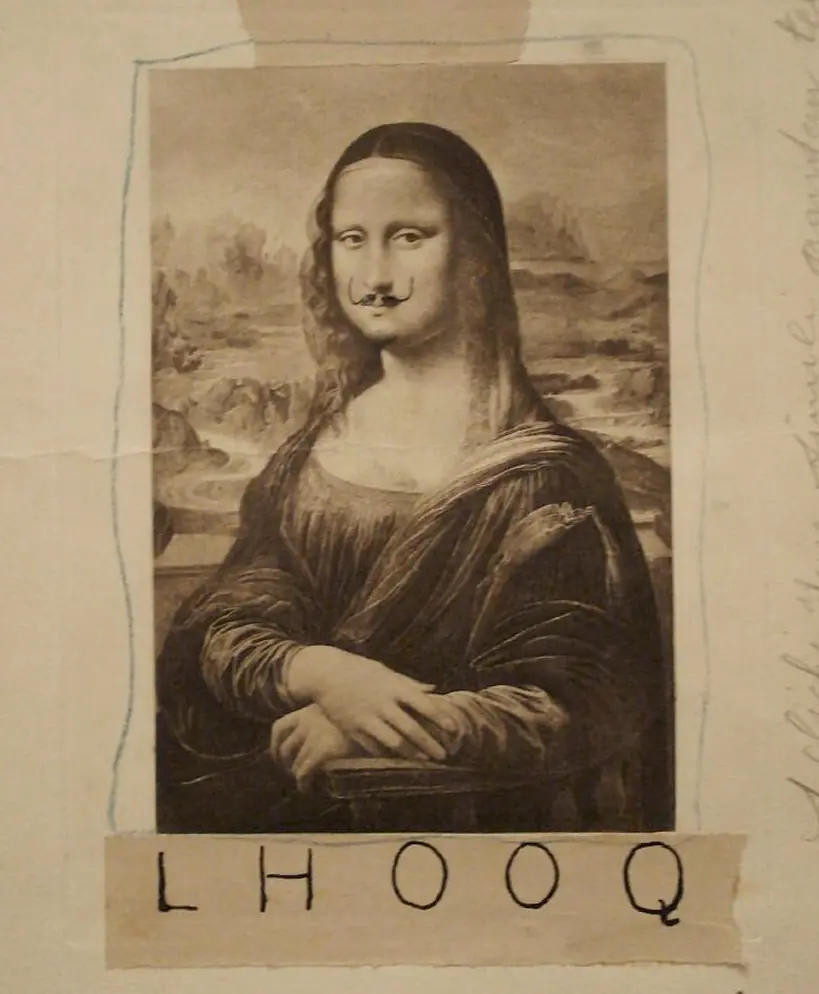This year’s word of the year takes us back to Dadaism
Oxford Dictionary has named 67 the new word of the year - but what does it have to do with Dadaism?
Bojana JovanovićNovember 15, 2025


Oxford Dictionary has named 67 the new word of the year - but what does it have to do with Dadaism?
Bojana JovanovićNovember 15, 2025
While trying to figure out how to start this text, I couldn’t find a single way to do it without sounding like the biggest boomer alive, even though I’m only 28. Writing about this topic makes me feel like a wolf in sheep’s clothing, like someone trying to infiltrate a space they don’t belong to, trying to understand something that isn’t meant for them. And even though understanding this word isn’t the point at all, it’s perfectly clear and transparent: it has no meaning. It means nothing, it isn’t “about” anything, it doesn’t hide a secret phenomenon, a cryptic message, or a metaphysical concept. It simply is what it is. Maybe that’s the starting point of every generational gap, the moment you realize the form pulls you in, but the meaning keeps slipping away. Or, in this case, it doesn’t slip away; it just doesn’t exist, and that’s the whole point.
67 went viral among Gen Alpha (everyone who has a kid under ten in the family already knows this) precisely because it means nothing concrete. Don’t expect any clarity in the next few paragraphs or that I’ll be the one to enlighten you,we’re in this confusion together, okay? 67 can sometimes mean “maybe,” sometimes “somewhere in between,” sometimes just a sound that fills the silence. Oxford Dictionary chose it as the word of the year precisely because of its undefinability. In a moment when language shifts faster than we can track, when bizarre trends and micro-narratives spread before they’ve had the chance to become actual concepts, 67 has become the perfect marker of our time, an expression that exists while refusing to explain anything. It’s slang that works as a kind of deliberately confusing bit of behavior kids use to drive their parents up the wall (at least according to one exhausted teacher online, who looks so lost that these nonsensical exclamations probably feel like a form of psychological torture).
Simply put: if you know, you know. If you don’t – you can’t “learn” it.
It’s as if the entire internet collectively decided to create one big inside joke. And we ancient twenty-eight-year-olds are not part of it. The way the whole thing emerged only reinforces that logic: the word came out of Gen Alpha’s brainrot humor, out of TikTok videos, out of a song, and now it’s marching through school hallways. Teachers have started banning it because children repeat it endlessly, as if they’ve discovered a little secret that binds them together. Searches for the meaning of “67” spiked several times over the summer, and they don’t seem to be slowing down,even though every explanation ends the same way: it’s impossible to define.
And in that emptiness, there’s something strangely familiar. It’s not the first time culture has celebrated something that refuses to be explained. Just think of Dadaism. Dadaism is, in short, an artistic movement born during World War I — a time of destruction, crisis, and total collapse of the cultural foundations Europe rested on. Dada (the word originally means “wooden hobbyhorse,” but the “meaning” behind it doesn’t actually exist) had no desire to search for meaning in a world that had lost it (sounds familiar, doesn’t it?). Its artists rejected logic, structure, and intention. They used chance, absurdity, word fragments, and collages that looked like visual noise. They wrote manifestos that read like jokes, created art that didn’t try to be art. Tristan Tzara, one of the movement’s core figures, said Dada was doubt and negation. Richard Huelsenbeck put it even more bluntly:
“Dada means nothing. We want to change the world with nothing.”
67 feels like a rebellious grandchild of Dada,one that carries its principles in a completely contemporary way, but still very much shows it learned from the best.
Instead of newspaper-cutout collages, we now have a complex network of videos and brainrot references that require you to be chronically online, with what feels like a PhD in all previous internet phenomena that led to this stage of digital language. Instead of logic-defying performance art, we have slang that spreads like a signal. Instead of rejecting traditional artistic values, we’re rejecting traditional meaning itself. The generations using 67 probably aren’t thinking about Dada, but instinctively they’re doing something similar: breaking the expectation that a word needs to carry a stable meaning. It’s enough for it to exist. To be passed on. To connect. And those tiny hands moving up and down with palms facing outward while these random numbers roll off the tongues of thousands of ten-year-olds trigger in me the same mix of confusion and fascination that people must have felt witnessing the first Dada performances more than a century ago.
In trying to understand it, I realized I probably don’t need to understand it at all.The Dadaists showed long ago that somewhere between nonsense and play lies a form of freedom that can’t be rationalized. What do I know, if you ask me, this year is perfectly summarized by the word 67. I don’t know what’s going on, I’m just glad I’m still here, and all I can do is hope that one day, some of it will make sense.